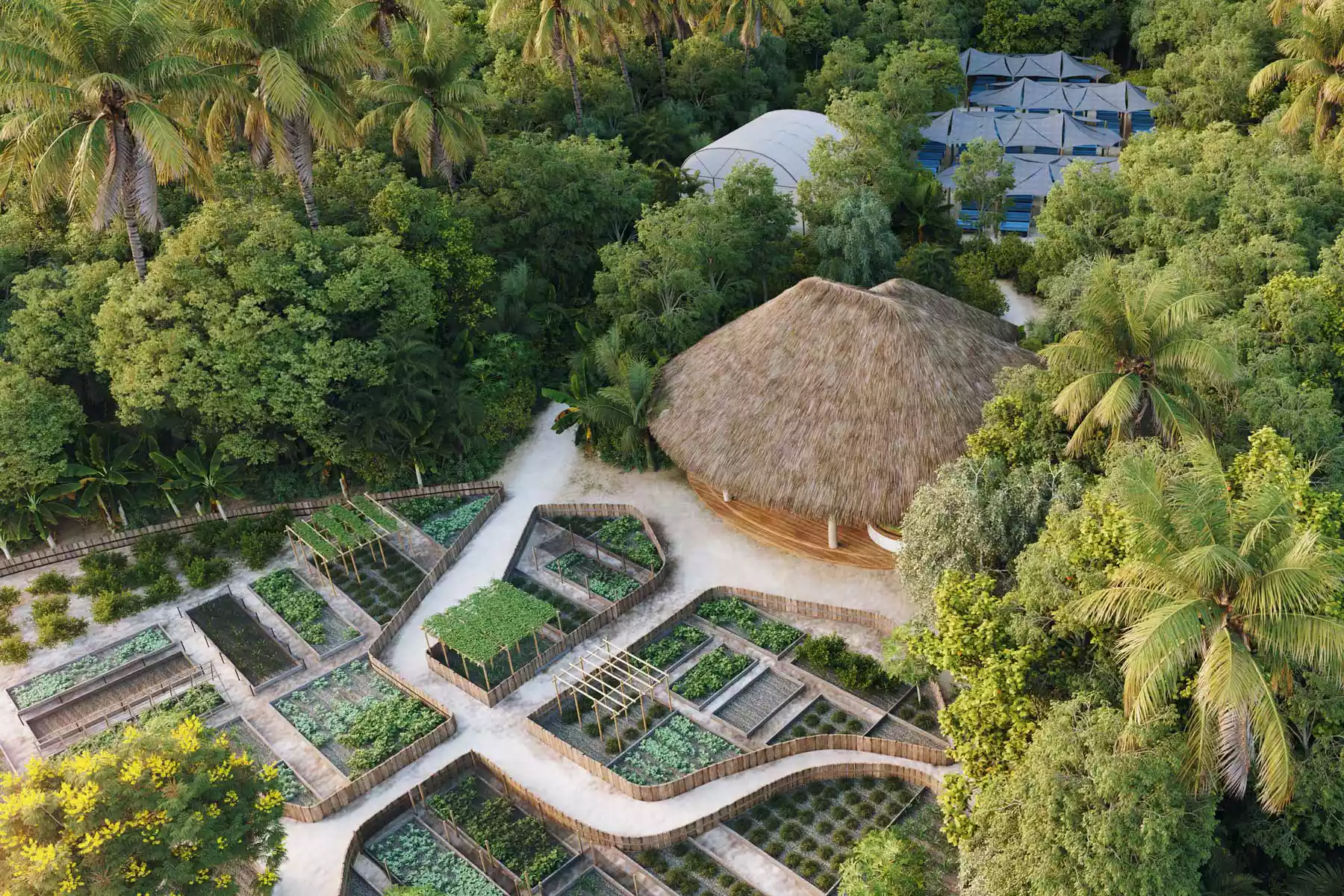Overview
Global Vision Awards: Acknowledging Sustainable Luxury Hotels
The Global Vision Awards honorees in the hotel and hospitality space are making a positive impact on their communities and the travel industry at large.
The Global Vision Awards aim to identify and honor companies, individuals, destinations, and organizations that are making strides in developing more sustainable and responsible travel practices. They exemplify thought leadership and creative problem-solving while taking actionable, quantifiable steps to protect communities and environments around the world.
Hotels are the cornerstones of many vacations and provide income for people around the world. For travelers, they can be an avenue to learn more about a culture. When built and operated mindfully, hotels can create new job opportunities and serve as a pipeline for economic growth. Furthermore, investments made in the hotel’s surrounding community can foster a thriving local environment. The Global Vision Award honorees in this category provide models for making a demonstrable positive impact on both a destination and the residents who call it home.
Cayuga Collection
“To many people, luxury requires bringing things from far, far away,” says Hans Pfister, president of the Cayuga Collection. “What does it mean to be ultra-local?” At the collection’s seven properties, the answer includes eco-conscious toiletries and locally made cleaning products, predominantly Central American sheets and towels, and dock-to-dish partnerships with nearby fishermen. Twelve years ago, long before banning plastic straws became trendy, Cayuga’s properties replaced them with bamboo versions, an idea stemming from an employee who grew bamboo in his garden.
The emphasis on local sourcing also extends to hiring practices. People from nearby communities are recruited “not just as gardeners and housekeepers,” explains Pfister, “but also as general managers and head chefs.” For example, at Arenas del Mar, a 37-room resort in Manuel Antonio, Costa Rica, Rodbin Bonilla transitioned from construction crew member to manager while founding a transportation service for guests. “Sustainability means investing in people to make a difference in communities,” Pfister states. “It’s possible, but it’s not easy.”
Kisawa Sanctuary
Nina Flohr envisioned her eco-resort on Mozambique’s Benguerra Island with significant consideration for environmental impact. Recognizing the beauty of the landscape, she asked herself, “Wouldn’t it be a shame if our structures interrupted that sweeping view? What if, instead, we embedded them?” This led to innovative designs that incorporate biomimicry, where nature’s shapes inspire the buildings. Kisawa Sanctuary features rolling thatched roofs that complement the dunes while also enhancing wind resistance, critical in a cyclone-prone tropical area.
The property utilizes sustainable materials like recycled plastic and native grasses and engages with local artisans to create unique interior woodworks. Interestingly, Kisawa operates a “resort to research” business model, funneling profits into the Bazaruto Center for Scientific Studies, a marine research facility on Benguerra. Guests can actively participate in data collection and conservation efforts, strengthening their relationship with the environment. “The idea is to forge connections with our surroundings,” Flohr explains.
Soneva Resorts
In 1995, Sonu Shivdasani and Eva Malmström Shivdasani established the Maldives’ first luxury resort, Soneva Fushi. Today, as they operate four properties under the Soneva Resorts brand, they are addressing the growing threat of rising sea levels through their initiative SCIE:NCE, which stands for Sustainability and Conservation for Island Ecosystems. Under the guidance of Dutch biologist Dr. Bart Knols, the team works on coral propagation and various environmental challenges, including eradicating invasive species and promoting sustainable practices among local resorts.
Southall
The seeds for Southall were planted generations ago, blending traditional farming with modern agriculture in a 325-acre Tennessee estate. Featuring a luxurious 78-room resort, the estate exemplifies regenerative practices by cultivating heirloom crops grown by its earliest settlers. Chef Tyler Brown leads the culinary experience, which is enriched by sustainable methods such as rainwater harvesting, beekeeping, and aquaculture systems. “Saving our landscape and improving agricultural practices is a community effort,” he articulates, emphasizing the importance of collaboration in these endeavors.
Taj Wellington Mews, Chennai
Notable for its 45-foot chandelier and sun-drenched pool, the Taj Wellington Mews is celebrated as South Asia’s first all-women-managed luxury hotel. Every department is led by women, facilitating a culture that promotes growth through benefits like extended maternity leave and support for family planning. The property’s parent company, Indian Hotels Company, champions gender equality by providing training programs in underserved communities, thereby fostering broader opportunities within the hospitality sector.
Wynn Resorts
Wynn Resorts, a leader in luxury hospitality, is committed to environmental sustainability. Their first initiative involved constructing a 160-acre solar farm at Wynn Las Vegas, reducing the hotel’s carbon footprint by 20 percent. This commitment extends across all properties, including the Wynn Resorts, which have embraced significant sustainability measures. For instance, the Encore Boston Harbor utilizes renewable energy, and the Wynn Macau has drastically reduced kitchen waste. The company aims for net-zero carbon emissions by 2050 while successfully delivering enriching guest experiences.





